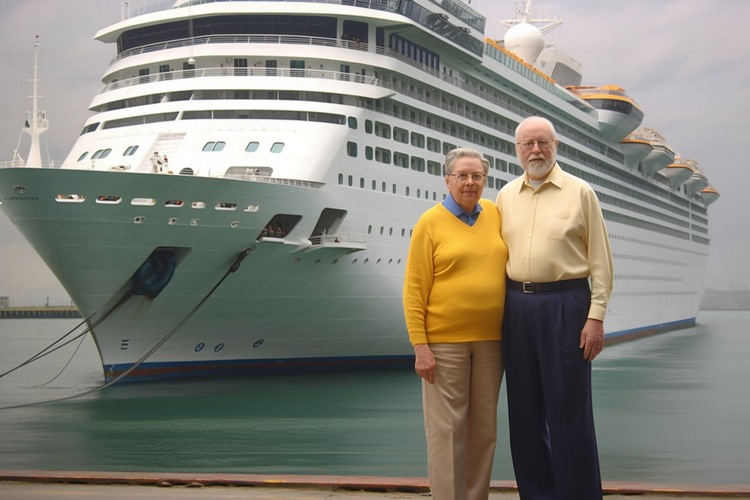Understand River Cruises for Seniors and How to Choose the Right Experience
River cruises have become increasingly popular among seniors, offering a unique and comfortable way to explore multiple destinations without the hassle of constant packing and unpacking. These floating hotels provide a leisurely pace, scenic views, and easy access to historic cities and charming towns along some of the world's most famous waterways. For older travelers, river cruises combine the allure of travel with the convenience and comfort that many seek in their golden years.

Why Are River Cruises Ideal for Seniors?
River cruises cater exceptionally well to the needs and preferences of senior travelers. Unlike ocean cruises, river vessels are smaller and more intimate, typically accommodating between 100 to 200 passengers. This creates a more relaxed atmosphere and allows for easier navigation of the ship. The gentle pace of river travel means there’s less likelihood of motion sickness, a common concern for many older travelers on larger ocean-going vessels.
Another significant advantage is the proximity to land. River cruises often dock right in the heart of cities and towns, making it easy for seniors to explore independently if they wish. Most river cruise lines also offer guided excursions suitable for various activity levels, ensuring that travelers with different mobility needs can enjoy the destinations fully.
What Are Popular Destinations and Cruise Durations?
River cruises offer a wide array of destinations and itineraries to suit different interests and time frames. In Europe, the Rhine, Danube, and Seine are perennial favorites, offering glimpses of medieval castles, vineyards, and iconic cities like Vienna, Budapest, and Paris. These cruises typically range from 7 to 14 days, allowing ample time to explore multiple countries.
For those seeking more exotic experiences, the Mekong River in Southeast Asia provides a fascinating journey through Vietnam and Cambodia, usually lasting about 8 to 15 days. In Egypt, Nile River cruises, often spanning 7 to 10 days, offer a unique way to explore ancient wonders like the pyramids and temples of Luxor.
Closer to home for American seniors, Mississippi River cruises showcase the heartland of the United States, with itineraries ranging from 5 to 22 days, depending on whether you choose to cruise a portion or the entire length of the river.
What Factors Affect the Price of River Cruises?
The cost of a river cruise can vary significantly based on several factors. Understanding these can help seniors budget appropriately and choose the best value for their needs.
| Factor | Impact on Price | Examples |
|---|---|---|
| Destination | Varies widely | European rivers tend to be more expensive than domestic U.S. cruises |
| Season | Peak seasons cost more | Summer in Europe, autumn in New England |
| Cabin Type | Higher decks and balconies cost more | Suite vs. standard cabin |
| Length of Cruise | Longer cruises are generally pricier | 7-day vs. 14-day itineraries |
| Inclusions | All-inclusive packages may have higher upfront costs | Drinks, excursions, gratuities included or not |
Prices, rates, or cost estimates mentioned in this article are based on the latest available information but may change over time. Independent research is advised before making financial decisions.
Generally, river cruises can range from about $200 to $500 per person per day, with luxury lines commanding higher prices. It’s important to consider what’s included in the price, as some lines offer more all-inclusive packages that can provide better value despite higher initial costs.
What Health and Accessibility Considerations Should Seniors Keep in Mind?
When choosing a river cruise, seniors should carefully consider their health needs and mobility limitations. Many river cruise lines have made significant strides in accommodating passengers with various health concerns, but it’s crucial to research specific offerings.
Look for ships with elevators, especially if they have multiple decks. Some newer vessels feature wheelchair-accessible cabins, though these are often limited in number. It’s also important to inquire about medical facilities on board and the availability of special diets for those with dietary restrictions.
The nature of excursions is another key consideration. While many river cruise lines offer tours at different activity levels, including “gentle” or “leisurely” options, some historic European towns may have cobblestone streets or steps that can be challenging for those with mobility issues.
What Are Some Tips for Choosing the Right River Cruise?
Selecting the perfect river cruise involves careful consideration of personal preferences, physical abilities, and travel goals. Here are some key tips to help seniors make the right choice:
-
Research the itinerary thoroughly to ensure it aligns with your interests and physical capabilities.
-
Consider the time of year – shoulder seasons often offer more temperate weather and lower prices.
-
Read reviews from other senior travelers to get insights into the cruise line’s suitability for older passengers.
-
Check the ship’s amenities and cabin layouts to ensure they meet your comfort needs.
-
Inquire about the typical passenger demographics to find a cruise with like-minded travelers.
-
Look into the dining options and whether they can accommodate any dietary requirements you may have.
-
Evaluate the excursion options and their activity levels to ensure they match your interests and abilities.
By taking these factors into account, seniors can select a river cruise that offers the right balance of comfort, exploration, and enjoyment, making for a memorable and enriching travel experience tailored to their needs and preferences.




